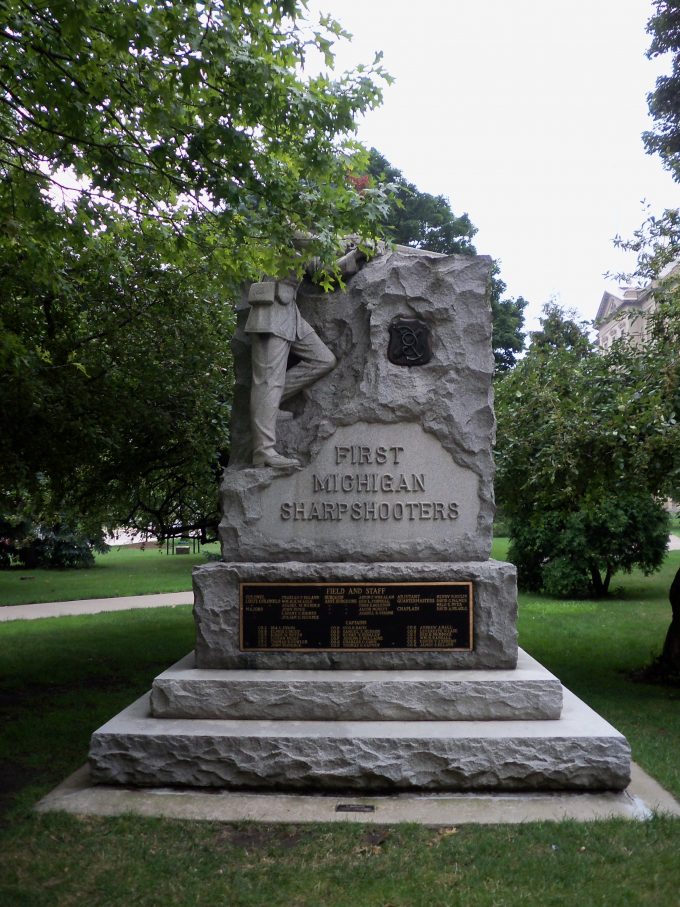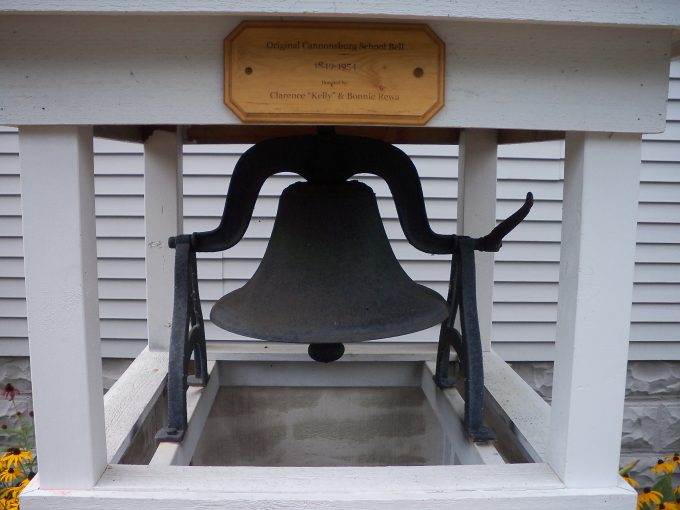A detailed analysis of these verses, and some friendly banter between those in attendance. We do hope that this class will bless you abundantly!
Podcast: Play in new window | Download
Subscribe: RSS
A detailed analysis of these verses, and some friendly banter between those in attendance. We do hope that this class will bless you abundantly!
Podcast: Play in new window | Download
Subscribe: RSS

and by Him to reconcile all things to Himself, by Him, whether things on earth or things in heaven, having made peace through the blood of His cross. Colossians 1:20
For context, the previous verse needs to be cited with this one –
“For it pleased the Father that in Him all the fullness should dwell, 20 and by Him to reconcile all things to Himself, by Him, whether things on earth or things in heaven, having made peace through the blood of His cross.”
The words, “and by Him” are thus speaking of Christ Jesus while the words, “to Himself” are speaking of God of the previous verse (remembering that the words “the Father” are inserted, but are speaking of God as the Father). The means by which God is reconciling all things to Himself is through Christ Jesus.
Here the term ta panta, or “all things,” is brought in again. All things which are to be reconciled are done so through Christ Jesus. Paul then follows this up with the words, “whether things on earth or things in heaven.” The intent here is that there is a need for reconciliation between the earthly and the heavenly things. As Albert Barnes notes, “The meaning is not, that ‘the things in heaven’ were alienated from God, but that there was alienation in the universe which affected heaven, and the object was to produce again universal concord and love.” This sentiment is found elsewhere, such as in Ephesians 1:10 –
“…that in the dispensation of the fullness of the times He might gather together in one all things in Christ, both which are in heaven and which are on earth—in Him.”
Through Christ, there is this gathering together of all things. In Him the fracture is healed and peace is restored. God has done this, “having made peace through the blood of His cross.” The words “the blood of His cross” are given to mean the blood that He shed on the cross. The blood and the instrument which caused it to be shed are almost tied together as one in Paul’s mind. God chose the cross to be the means by which Christ’s blood would be shed, thus the cross stands as the symbol of what occurred. When we look to the cross, we look to the symbol of our faith which represents the blood that was shed.
It is through this instrument of death that life and reconciliation come about. It is through the cross that peace is realized. The blood of His cross then is a term which is linked to the thought of atonement, redemption, and propitiation as is spoken of in Romans 3 –
“…being justified freely by His grace through the redemption that is in Christ Jesus, 25 whom God set forth as a propitiation by His blood, through faith, to demonstrate His righteousness, because in His forbearance God had passed over the sins that were previously committed, 26 to demonstrate at the present time His righteousness, that He might be just and the justifier of the one who has faith in Jesus.” Romans 3:24-26
One thing that must be understood from this verse is that “all things” must mean “all things” just as it did before. Paul uses the same Greek term, ta panta, in verses 16, 17, and 18. It would not be logical to think that he suddenly means something different here than he did in those verses, because they are all connected to the same overall thought concerning Christ. Understanding this, while at the same time taking in the whole counsel of Scripture, the idea of reconciling all things through Christ must include the thought of condemnation, not merely salvation.
All things are potentially reconciled through Christ’s cross. Not all things are actually reconciled though, at least not in the same way. God reconciles His faithful through salvation; God reconciles those who are at enmity with Him through condemnation. God has set forth the cross of Christ as the means of reconciliation, while faith in that cross is the mode by which it comes. Without faith, the potential reconciliation is not realized, and thus only condemnation is left.
Life application: When we look to the cross, we are looking to the instrument by which God has brought us back to Himself. When we boast in the cross, we are not boasting in an idol, rather, we are boasting in the highest act of God’s love for mankind. The cross stands as a symbol and a banner for the work of Jesus Christ. Let us not be confused about the meaning of the cross. Rather, let us boast in it because in so boasting, we are exalting the work of God in Christ.
Lord God, thank You for the peace and restoration which has come about through the cross of Calvary. There Christ our Lord shed His blood, thus allowing peace and reconciliation with You once again. Help us to never shy back from speaking boldly about the great thing You have done for us in that act. May our boast be in Christ and in His cross, knowing that without them, we would be forever separated from You. But in Him, there is peace. Thank You, O God, for the precious blood of Calvary. Amen.

Thursday, 30 March 2017
For it pleased the Father that in Him all the fullness should dwell, Colossians 1:19
The construction of the words of this verse leave it open as to the identification of the subject. The words, “the Father” are inserted here. Some translations state, “God,” or even “the Godhead.” Others leave any insert out. The Father is referred to in verse 12 where Paul acknowledges “giving thanks to the Father.” However, the term “God” is used in verse 15 where it says, “He is the image of the invisible God.” As this is the nearest antecedent, and as “God” is at other times referring to the Father, it appears to be a better choice to fully define what is on Paul’s mind.
Further, Colossians 2:9 states, “For in Him dwells all the fullness of the Godhead bodily…” This is speaking specifically of Christ as well, and so Paul was probably thinking of the Godhead, or Deity, here in 1:19 as well. With this understanding, the verse can be logically evaluated.
“For it pleased” shows that what has come about in Christ was something satisfying to God. Everything about the exaltation of Christ which has been seen in the preceding verses was by the design, and with the approval, of God. Christ Jesus’ preeminence in all things was God’s intent all along. This is revealed through the words that “in Him all the fullness should dwell.” The pleroma, or fullness,” refers to all of the divine attributes and the essential nature of the Godhead. Everything about God that can be revealed to us is done so through Christ Jesus. He is the focal point for us to understand God, fully and completely. It is through Him that God will ceaselessly and endlessly reveal Himself to us. This is fully supported by the words of Revelation 21 –
“But I saw no temple in it, for the Lord God Almighty and the Lamb are its temple. 23 The city had no need of the sun or of the moon to shine in it, for the glory of God illuminated it. The Lamb is its light.” Revelation 21:22, 23
What God reveals of Himself is done through the Lamb. Thus God’s light of revelation is fully expressed to us through Christ Jesus. This was what Jesus was telling the apostles in John 14:9, “He who has seen Me has seen the Father.” The fullness of the Godhead is seen and expressed to us through Jesus Christ because it dwells in Him. The word Paul uses for “dwell” is one which indicates settling down as a permanent resident. Jesus didn’t temporarily receive the fullness of the Godhead, but He possesses it completely and eternally. He is God’s permanent focal point for revealing Himself to us.
Life application: God has chosen to reveal Himself in His fullness through Jesus Christ. To deny the deity of Christ is to deny the truth of God. One either has the Son, which includes the fullness of God, or they do not have God. It is that plain and that simple. Don’t resist God any longer, but rather yield yourself to the Son and, in turn, be pleasing to God the Father.
Heavenly Father, we can buck against Your word, denying what You have done through Jesus Christ, but only we will suffer. You are pleased to reveal Yourself through Him. We can either accept that revelation of Yourself, or we can walk away from You and remain apart from You. But in Christ, there is fellowship; in Christ, there is hope; and in Christ, there is full and eternal reconciliation with You. May we yield our hearts and bow our knees before the matchless King of Glory! Praise You, O God, through Jesus Christ our Lord. Amen.

Wednesday, 29 March 2017
And He is the head of the body, the church, who is the beginning, the firstborn from the dead, that in all things He may have the preeminence. Colossians 1:18
Paul continues on with his description of Christ. In the previous verse, he was seen in relation to the creation, He being before it and above it in all ways. Now He is shown in relation to the church, a body which came forth out of the creation, and which is based on what He has done in creation. Paul shows that “He is the head of the body, the church.” The word “He” is once again emphatic, just as it was when speaking of Him as being the image of God. The One who is the image of God, it is He who is the head of the body. There is parallelism running between the two thoughts which will be built on by Paul.
The people of the world are all a part of the creation, but because of the fall, and because of free-will within man, not all of those in creation have acknowledged God. However, within the stream of humanity, God has called out a group who do acknowledge Him, those in this group have become members of His body. Paul deals with this in the book of Ephesians, but there the stress is placed upon the unity of the body. Now he places the stress on the preeminent position of Christ within the body. Jesus Christ is the Head of this called-out group, the church.
While speaking of Him, he says, “who is the beginning.” As He is the One who created all things, so He is the beginning of the new thing which God has done within the creation. In this body, which is called out of the world, Christ is the beginning of it, being “the firstborn from the dead.” This is where the parallelism finds its true anchor. It is between Christ’s position in relation to creation, and His position in relation to the church. He is “the firstborn over all creation” as was seen in verse 15, and He is “the firstborn from the dead.” The two thoughts place Christ Jesus in the preeminent position in all things.
However, there is a point which must be considered. Though Christ is the firstborn of both, His status in relation to the church differs from His status in relation to creation. He is the firstborn from the dead, having been One who was dead, just as those who come after Him also die; but though He is the firstborn over all creation, He is not a part of the creation. In other words, it shows the magnitude of what Christ, the Creator, was willing to do in order to identify with those He has called. He was willing to participate in the most humiliating aspect of all in order to fellowship with us. As death is the result of sin, He was willing to take our sin upon Himself and die. Having no sin of His own, He naturally had to resurrect. In His resurrection, He carried our sin away through His death, leaving it in death so that we might follow Him in life.
Because of this, He is the firstfruits from the dead, and the pattern for all who will afterwards arise from the dead. This is speaking of the resurrection, not a reanimation. Others have been reanimated to life – Lazarus for example, but Christ is the first of the resurrection, coming forth to eternal life. Death is conquered in Him, and so will be the case for all who are in Him.
Thus, whether in relation to creation, or in relation to the church, Christ is first so “that in all things He may have the preeminence.” The words in Greek read, “might become being first.” As Vincent’s Word Studies states concerning this, “He became head of the Church through His incarnation and passion, as He is head of the universe in virtue of His absolute and eternal being.” In all things, and in all ways, Jesus Christ is the first. He holds the position of absolute preeminence.
Life application: When we consider what God has done through Jesus Christ, we should be humbled to the very core of our being. It is impossible for us to truly imagine the value God has placed upon humanity when we consider the lengths He was willing to go through in order to bring us back to Himself. And He has done it in such a way that His glory radiates out in the face of Jesus Christ our Lord, our Creator, our Savior, our Redeemer, and our matchless King.
Lord God, it’s impossible for us to grasp the measure of Your love, but we have a way to consider it in relation to ourselves. We can see what You were willing to do by looking to the story of Jesus. That You would condescend to come into Your creation in order to bring us back to Yourself shows us the highest and most unimaginable cost that You were willing to bear. The cross of Calvary truly says it all. May our lives be lived in response to that most august of all events, never forgetting what You did in order to redeem us. Great and marvelous are You, O God. Amen.

Tuesday, 28 March 2017
And He is before all things, and in Him all things consist. Colossians 1:17
Again, words of concerning the deity of Christ issue from Paul’s pen. There are two clauses in this verse, both of which have the word “He” in the emphatic position. In English, we might say “He and only He.” As “He is before all things,” then nothing in time is before Him. As only God existed before all things, then Jesus Christ is God. He is the great I AM of Exodus 3:14, meaning the Lord, Yehovah, who is referred to throughout the Old Testament. He is self-existent and dependent on no other thing. Thus His claim of John 8:58 is more fully understood –
“Most assuredly, I say to you, before Abraham was, I AM.”
Paul’s words here also confirm the words of the previous verse as well which said, “All things were created through Him and for Him.” If He alone is before all things, then He must be the Creator of all things. Only He is a necessary Being; all other things are contingent beings, dependent on Him for their existence and continuation. As only God is a Necessary Being, then Jesus must be God. This is then realized in the words, “and in Him all things consist.” The BLB translates this as, “in Him all things hold together.” Darby translates it as, “all things subsist together by him.”
The words here are restated by the author of Hebrews using the words, “…and upholding all things by the word of His power.” The universe, being contingent, was created by Him. However, it is also dependent on Him at all times for its continued existence. This shows us that He is God, who alone is absolutely necessary; He cannot not exist. All other things could simply not be. But God alone must exist. This is the Being that Paul says that Jesus Christ is. As the Bible teaches that God is also Father and Holy Spirit, then we are again being instructed in the doctrine of the Trinity. This is the inescapable result of accepting the words of Scripture when taken at face value.
Life application: One argument used by cults like the Jehovah’s Witnesses is that the Bible never uses the word “Trinity.” That is as stupid as a a football bat. The Bible also never uses the term “original sin,” and yet it is a doctrine which permeates Scripture. The Bible never uses the term “rapture,” but it is a doctrine which is found in several passages. Just because we use terms not specifically stated in Scripture, it does not mean that those terms are not taught in Scripture. Don’t be led astray by nutty arguments that have no basis in reality. Core doctrines can be explicitly stated or implicitly stated, but they remain core doctrines because they describe and explain what the Bible clearly teaches.
Lord God, to You alone be the glory. Your hands have fashioned the cosmos. The stars shine because of the magnificence of Your power. The galaxies spin and gleam throughout the vast recesses of space because You have ordained them to do so. The spider weaves its web because of the wisdom You have instilled in it, and the creatures of the ocean swim about because You have place them there. Everything is as it should be – all because of Your wisdom. To You alone be the glory! Amen.